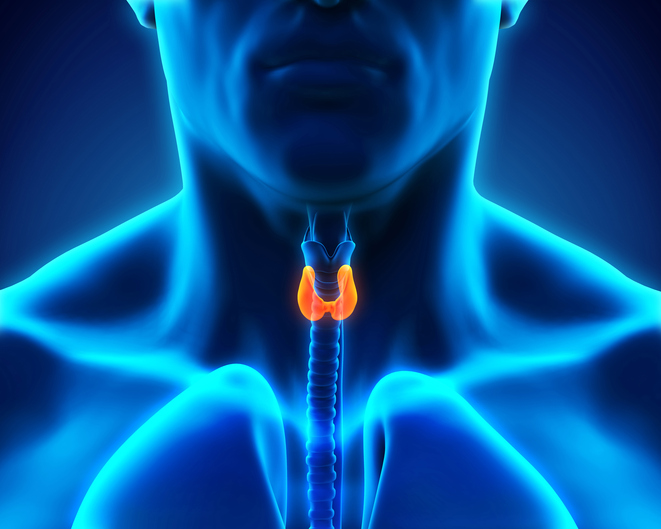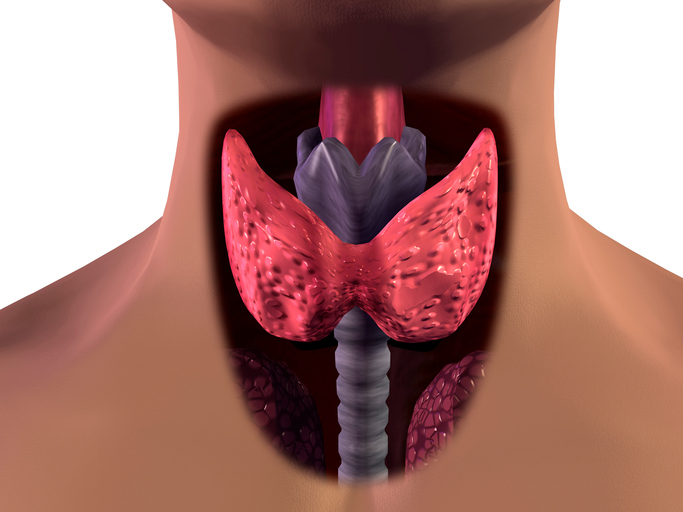
What is thyroid cancer?
Thyroid cancer affects the tissues of the thyroid gland, which is located in the front of the throat, below the thyroid cartilage (otherwise known as the Adam’s apple).
The thyroid gland is responsible for producing several important hormones, such as the thyroid hormone, which is involved in controlling body temperature, weight, energy level and heart rate. The thyroid gland also produces calcitonin, which helps the body use calcium.
According to the American Cancer Society, over 56,000 people in the United States are diagnosed with thyroid cancer every year. Compared with other common types of cancer, approximately 80 percent of cases occur in people who are under 65. Also, women are about three times more likely to develop thyroid cancer than men.
The Types Of Thyroid Cancer
There are several different types:
• Papillary carcinoma is the most common type, accounting for approximately 80 percent of cases. Papillary carcinomas are slow growing, differentiated cancers that develop from follicular cells and can develop in one or both lobes of the thyroid gland. This type of cancer may spread to nearby lymph nodes in the neck, but it is generally treatable.
• Follicular carcinoma is the second most common type, and accounts for approximately one out of 10 cases. It is found more frequently in countries with an inadequate dietary intake of iodine.
• Hürthle cell carcinoma, also known as oxyphil cell carcinoma, is a subtype of follicular carcinoma, and accounts for approximately 3 percent of all thyroid cancers.
• Medullary thyroid carcinoma develops from C cells in the thyroid gland, and is more aggressive and less differentiated than papillary or follicular cancers. It accounts for approximately 4 percent of all thyroid cancers.
• Anaplastic carcinoma is the most undifferentiated type, meaning that it looks the least like normal cells of the thyroid gland. As a result, it is a very aggressive form of cancer that quickly spreads to other parts of the neck and body. It occurs in approximately 2 percent of thyroid cancer cases.

What Are the Symptoms?
The most common early sign is an unusual lump, nodule or swelling in the neck. If you notice a new or growing lump, you should see your doctor, who can run additional tests to identify the cause. Most nodules on the thyroid are usually benign, but it is important to have any unusual growths examined by a health care professional.
Other possible symptoms include:
Neck Pain. In many cases, neck pain starts in the front. In some cases the neck pain may extend all the way to the ears.
Voice Changes. Experiencing hoarseness or other voice changes that do not go away could be a sign.








